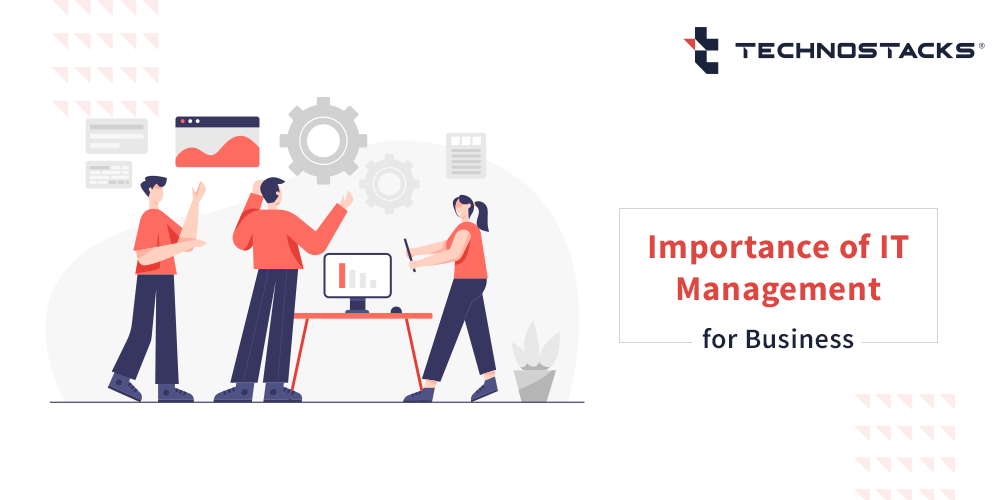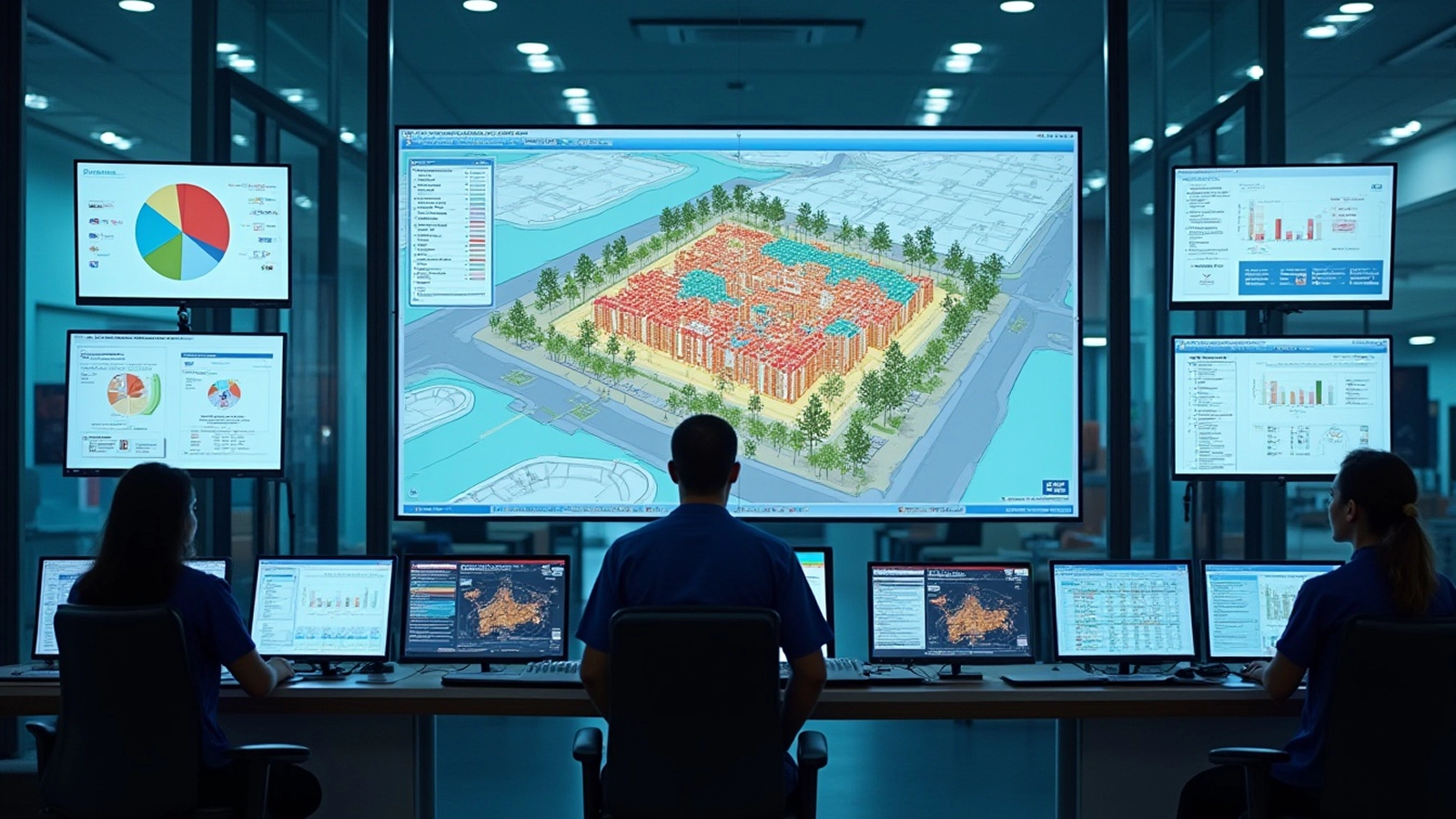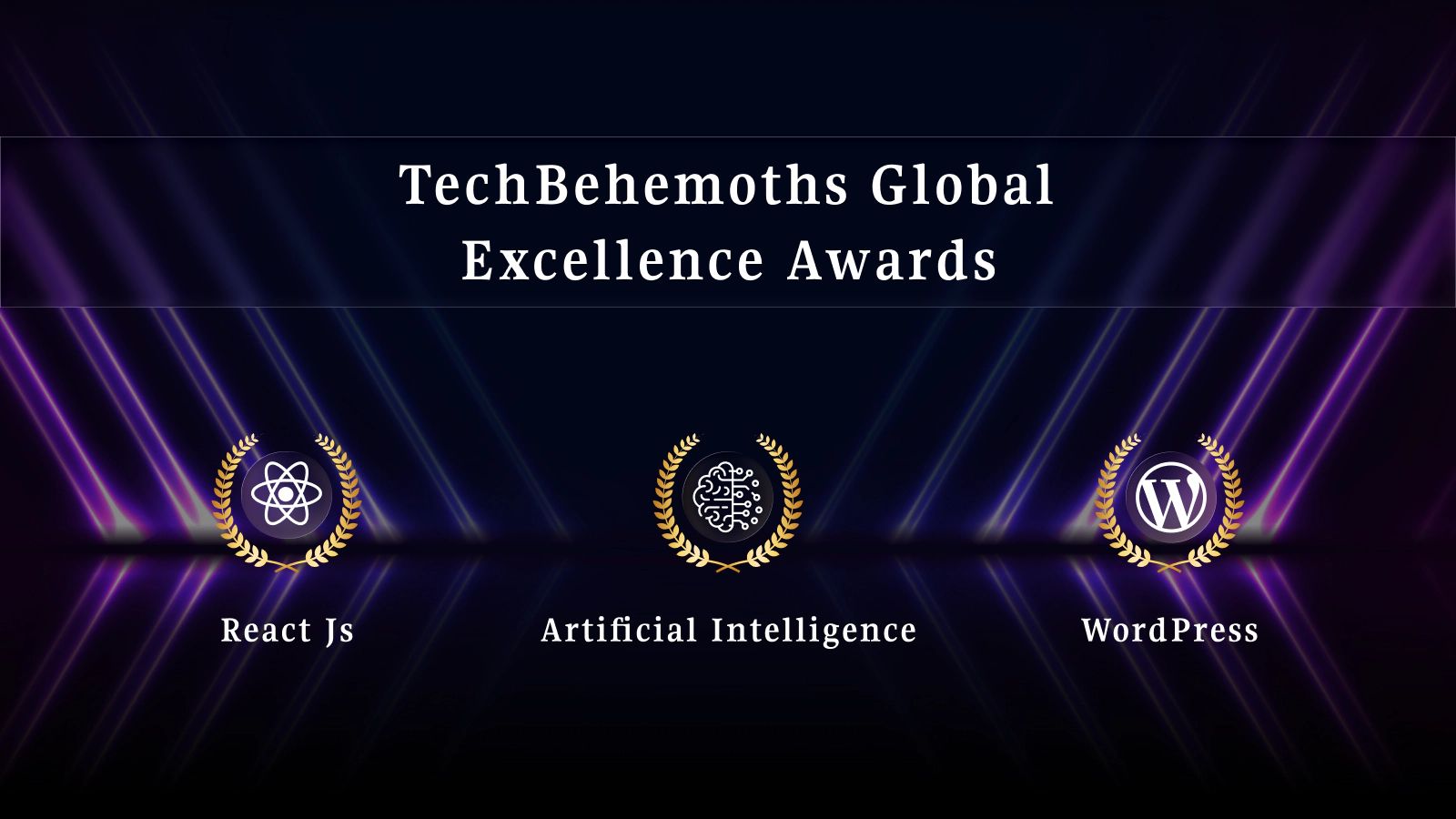What Is IT Management and How It Can Help Your Business?
The long awake of technology is witnessing a sea change in all realms of business. Such include software, hardware and the network. IT management is a crucial facet of administering while tracking the technological systems of an organization.
As per the report by Statista, The IT sector will grow by 104 percent between 2018 and 2023. These numbers is enough to show why IT management is important for businesses!
IT management is much more than simply hiring someone to manage the functioning of IT. Hence, if you are already wondering what IT management is, let us dig deeper to explore what IT management is and what makes it an essential component for all businesses.
What is IT Management Exactly?
If you want a simple answer, IT management refers to managing anything in the realm of technology. IT management connects businesses to tools that are required to handle all processes in an efficient manner.
In simpler words, it is referred to the operation and monitoring of the information technology system of an organization. It primarily focuses on the ways to make the systems work in an efficient manner. Today, more numbers of organizations are prioritizing IT at the forefront, with the departments entitled to a multitude of responsibilities.
Prioritizing all the technological requirements as required by a business can be a problem. Solving a problem is a massive part of this process, and foreseeing all the possible roadblocks. IT management team entails using the advancements to simplify the process while streamlining the business.
Top 3 Components of IT management:
- IT Strategy
The primary component is IT strategy, as it mainly involves connecting the department with the business’s needs and requirements. With an IT strategy, it is crucial to have a plan and deal with the scenarios well. This is when your business should have a strong strategy of IT.
If your company intends to expand and hire, the department should be equipped to find out ways to manage the increased workflow. Moreover, if the company is under a threat of cyberattack, the tech will be required to recover lost information.The strategy needs to include the following:Support the operations of business:
It is essential to support the operations by keeping the goals in mind. This helps in considering all aspects of the business while efficiently communicating with the leaders and attaining a holistic view of the needs.Secure the information of the company and customers:This can be done by curating a plan and also by staying abreast with the latest strategies on security.
Offer optimum value to the company:
This can be done by delivering a reliable service while propagating a framework for the plans. This helps to improve as and when the organization grows and prospers.
Responsibilities of IT Managers:
● IT managers guide the team and take care of the following responsibilities:
● Securing network and improving network availability
● Integrating new technology amidst the structure of the business
● Generating greater plans
● Handling the processes taking place onlineAmong all of these, the most crucial role of IT managers is to stay abreast with business and its functioning. It is usual for the individuals to feel a lot attached, which can be pretty detrimental to the reputation of the business. Hence, IT managers need to have the required expertise and knowledge that helps to upgrade businesses.
- Top Role of IT management
The environment entails hardware, network and software components that comprise servers, computers, applications, routers, mobile technologies and microservices. IT managers are equipped to monitor and govern IT systems while ensuring their functionality. Here are the top responsibilities involved:● To safeguard data and maintain confidentiality
● To determine the requirements of business necessary for IT systems
● To manage costs and budget of IT
● To manage network security and control system security
● To provide constant desk support
● To implement hardware, software and data systemsThe departments are headed by Chief Information Officers who evaluate the IT strategies and goals of a business under IT management responsibilities. - Top Skills of IT Management
Are you wondering what an IT manager does? From having a crucial role in the organization, they extend their support to aiding the operation and its efficiency. If you are looking to scale the technology department, here are 5 top IT management skills to possess.● Technical skills
There is no way that an IT manager can be hired who does not know much about software. Hence, one of the core things you need to be certain of is that the person must understand and reciprocate similar language as the rest of the team.
The managers dig deeper to comprehend the system of hardware, its configurations and the network. They are furthermore equipped to understand the needs and requirements of the company.
● Financial skills
An IT manager has the ability to oversee all innovations and solutions necessary to upgrade and upscale the company.
If you need a new company to be upscale and diverse itself into an app, then it deems to be the role of the IT manager to implement the vision realistically. One must have a thorough understanding of the budget and evaluate what can be done with it.
● Communication skills
This is the third quality that one must possess. While hardcore skills are a must, communication skills also must not be avoided. The IT managers are not just managing one team but also are constantly communicating with other leaders and departments.
● Leadership skills
A talented and skilled leader has the ability to make decisions. The leader has the potential to make error-free decisions while acknowledging the weaknesses and strengths. The right managers must prioritize while controlling the operation of all projects.
● Presentation skills
Several movies portray the programmers to be an antisocial group of individuals. However, this is no longer true, and the reality deems to be different today. The managers need to comprise the right presentation skills and sell the ideas to the team.
Key Features of IT management
- Analytics
An analytics solution is helpful in mining terabytes of data in acquire the root cause of the impact. This furthermore helps in identifying the potential dangers and predicting the outages while driving improved efficiency. The organizations, as a result, can further gain deeper insights while making it easier to avoid all discrepancies.
The analytics offer insights that are helping enterprises to understand the customers. This can furthermore drive the strategy further. - Cloud computing
The cloud services are equipped to offer greater data security and scalability along with data recovery services. The cloud can offer more efficiency along with reduced infrastructure costs.
It can help in benefitting all aspects of a business, including finance and operations. It furthermore helps to position the organization for improved cloud-based solutions.
Cloud enablement assists IT departments in ensuring that the mainframe systems are modernized. The organizations primarily benefit from greater productivity and improved performance. - AI and cognitive computing
The AI systems help analyze data, learn, and predict the problems to help the managers deliver improved service quality. The chatbots functions as virtual agents. The customers can use them and learn more about products and services. - IoT
The platforms aim to collect and furthermore analyze data from sensors and devices. The managers can significantly derive the right insights.
Why IT management is Important for Business?
The whole point of Information Technology management lies in aligning the business goals. Please keep reading to unfold more about how can IT management help businesses and understand the importance of IT management for business.
- Helps to save money
When an IT strategy is created, it forces the department to put its focus on prioritizing issues and goals important to the business. This means that you will acquire a better understanding of the projects required. As a result, you can furthermore allocate the required budget to the efforts.With quality IT services, a business is likely to welcome a faster productivity rate with zero downtime. The customers will soon turn into loyal customers. Managing the IT assets hence means putting the hardware to the right use. At the same time, it also means that the software will be up to date. Hence, as a result, a business can procure everything to its ultimate potential with zero wastage. - It helps to save time
When everything goes well for the company, it soon expands. With this, you also add more employees to the payroll and more clients to the company. While this is a blessing for any business, it also has the probability of creating problems for the tech team. The tech environment starts getting more complicated with time.Hence, it becomes crucial to monitor the devices on the network, add the features to the site and improve the entire user experience. By developing a constructive plan, the IT professionals would not have a hard time managing last-minute essentials. On the contrary, specific effective measures can be taken to deal with the problems beforehand. - Safeguarding data
Protection of data and maintaining confidentiality is one of the primary goals of an IT manager. The department ensures data safeguarding, with the safeguards being in the right place. This protects against all destruction, misuse, and loss of the company. Examples of breaches could include stealing and misusing information/data. This doesn’t all have to be managed internally, of course. Lots of businesses offload aspects like cybersecurity monitoring and support to third party experts. It’s all about looking for the right local provider to give you the helping hand you need to safeguard data consistently, no matter what your infrastructure might involve. Take San Diego’s leading IT services as an example. Tapping into support of this type lets organizations of all sizes get a handle on their vulnerabilities, without overstretching in-house resources. - Less stress improved productivity
IT management is no longer about automating the workplace or allowing computers to do all the hard work. Instead, today IT management is becoming broadly applicable, helping streamline life while offering an improved focus on the business. It is less about operating and more about working together as a whole. - Troubleshoot problems
Troubleshooting refers to solving the problems in the present digital world. It can be applied to several things like repairing failed digital processes and products. The logical search is furthermore carried out for the source in order to solve it. Troubleshooting is likewise beneficial to identify the symptoms whenever something is wrong. - Maintain databases and security
The department is highly responsible for security and efficiency. IT is beneficial for the maintenance, creation and administration of the databases for things including businesses sales transactions, product catalogues, financial records, marketing activities and more. - Analyze data
Information technology management has the ability to analyze specific data while helping to plan the journey of business with the help of trends and information presented. Moreover, efficiency enables businesses to procure tools to solve challenging obstacles while helping to plan the growth of the company in the future. - Efficient communication
The success of a company largely depends on the needs, behaviours, and trends of a customer. Improved communication is the best mechanism to deal with the demands, solutions and problems of customers.IT management is the best mechanism to deal with the demands of customers. The beauty of the management is it allows businesses to propagate improved communication with various customers.IT management also offers various ways to communicate with customers in a convenient manner. Such channels comprise social media chats, video calls, emails, email newsletters, tech-webinars and more.
What are IT teams?
Information technology is an integral part of the collaborative industry. The teams are at the centre of success. The team of skilled IT professionals primarily rely on the skills and knowledge in order to meet the goals at the fastest time possible.
Generally speaking, there are four distinct types of IT teams.
- Operations
Operations teams primarily work on the infrastructure, having a direct impact on the operations. Web services, data centres, and networks are under this category. The teams are known as IT service management and pave a permanent role in the business. - Project
Project IT managers teams are primarily hired to solve the problem. As an illustration, it is vital to employ software developers and build a website. However, the term of the employment only tends to extend until completion. It might, however, be a good idea to outsource the team. - Support
This is a combination of operation and project teams. These are composed of IT professionals tackling specific problems while sustaining the IT ecosystem as a whole. - Process
Process teams help to improve the processes related to the growth of the business. The professionals are analysts, data miners and other specialists using technology to assist your business.
Key Takeaways
Thus, by now, we have grabbed an in-depth understanding of what IT management is and what importance it holds for a business.
If you are looking for the perfect company providing IT solutions and IT resources, then Technostacks would be the perfect choice for your business. We are a leading IT services firm with diverse experience in working with different IT technologies. Get in touch with us to acquire reliable IT consultation and services.
FAQs:
Q1) Why is IT management important?
IT is the backbone of the company and manages everything, from data management to automation. The objective lies in ensuring that the technologies necessary for the business are high performing and secure.
Q2) What is IT information management?
IT management or information technology management is referred to as the way in which the technology systems of the business are organized. This includes the tools used for management, the professionals managing technology or any other activity.
Q3) What is the role of the IT managers?
The IT manager handles all types of responsibilities, such as the following:
● Strategic planning
IT managers propagate a direction, define objectives, build the roadmap, and designate the budget.
● Leadership
The managers train, hire and also mentors the team of administrators, engineers, practitioners and specialists.
● Program oversight
IT managers dedicate themselves to project planning and developing systems while supporting the organization well.
● Innovation
The IT managers furthermore assist organizations in evolving and evaluating their investments while identifying the prominent growth areas. They also derive opportunities to improve the productivity of the organization again, increase reliability and improve adaptability.
Q4) What are the business benefits of IT service management?
There are varying business benefits of IT service management. Here are a few of them:
● Improved efficiency
● Reduced operational costs
● Implementing IT Changes without any risks incurred
● Improved accountability
● Greater visibility into operations
● Improved performance
● Greater self-service productivity
● Improved service and customer experience
● Better access and communication
● Reduced workload
● Improved ROI
● Enables effective and strategized planning
● It saves time and money
● Greater collaboration between departments
● Improved transparency
Q5) What are IT Management Tools?
There are various IT management tools, such as the following:
● Strategic planning
● CRM
● Benchmarking
● Advanced analytics
● Customer satisfaction
● Advanced analytics
● Customer satisfaction
● Supply chain management
● TQM
● Change management
● Digital transformation
● Mission and vision statements
Q6) What does information technology do for a business?
Information technology works by building communications networks for a company. It furthermore safeguards the data and information, creates and administers databases, and helps all employees in an organization troubleshoot problems with mechanical devices while maintaining the efficiency of business information.
Q7) Which IT technology is best for business?
Any business must have the right tech tools to help you set the game up for success. Here are the top 5 IT technologies best for business.
● Customer relationship management system
● Project management software
● Online data storage
● Financial management tools
● Cybersecurity software
Q8) How can information technology improve a business?
The speed of the business has become increasingly necessary, and the use of the technology is of utmost paramount today. The companies are relying mainly on technology, and here is how information technology can improve the business.
● Business efficiency
● Achieve targets
● Better customer service
● Improved communication
● Increased use of cloud









